Longtime hockey player turns a chore into a thriving business
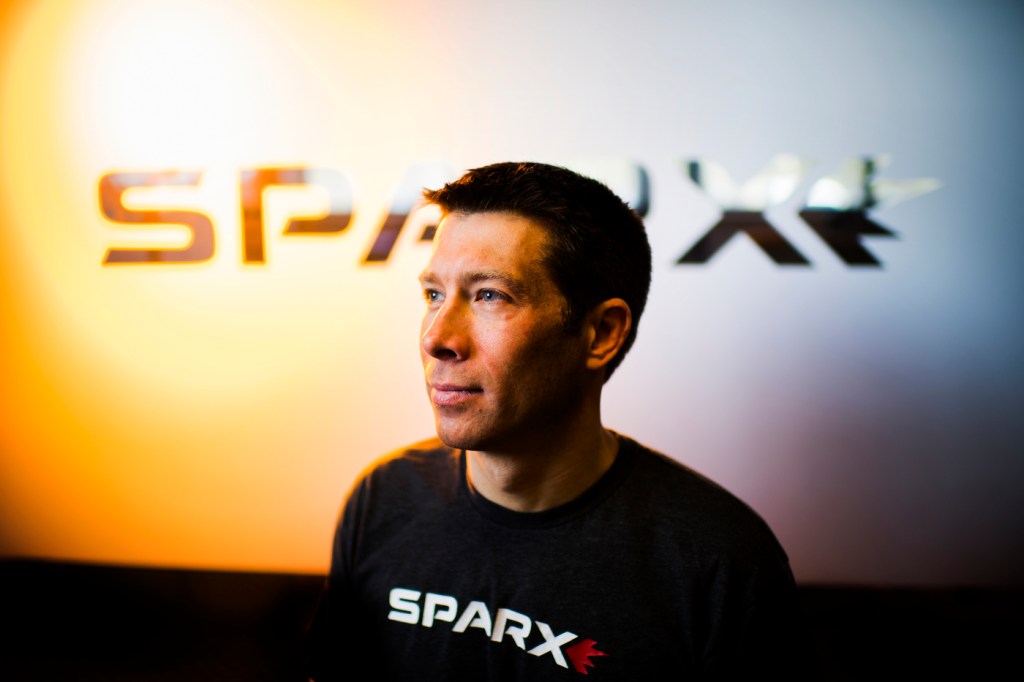
By every measure, Russell Layton had achieved success by his mid-30s: two college degrees, a lucrative job in the corporate world, a wonderful wife and kids, and a beautiful home in the Boston suburbs. But something was nagging at him: He had always wanted to start his own business, and he felt himself slipping deeper into the safe, complacent career he’d always feared.
I realized I’d been on this hamster wheel. I was following the rules.
Russell Layton E’98
So in 2013, Layton began developing a product that had been percolating in his brain: an easy-to-use, at-home sharpener for ice skates, perfect for both professional hockey players and avid amateurs like him.
Three years and many stops-and-starts later, Layton is now head of his own rapidly growing business, located in Acton, Massachusetts. His patented blade sharpener, Sparx, is used by thousands of hockey players in the U.S. and Canada, including more than 20 National Hockey League teams, a dozen American Hockey League teams, several collegiate teams (including Northeastern’s), and hundreds of club and youth programs. The experience has given Layton a fresh perspective on career development.
“Sometimes you need to throw away the ‘This won’t work,’ and just say ‘To hell with it, let’s give it a try,’” he says.
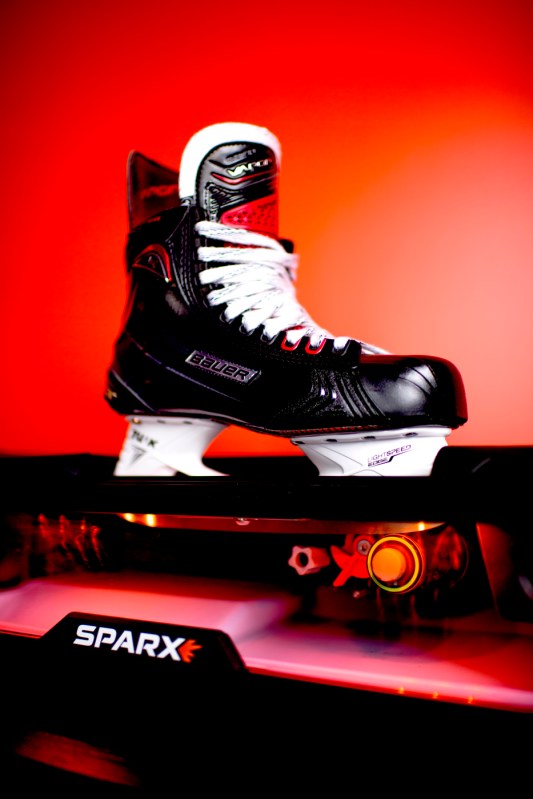
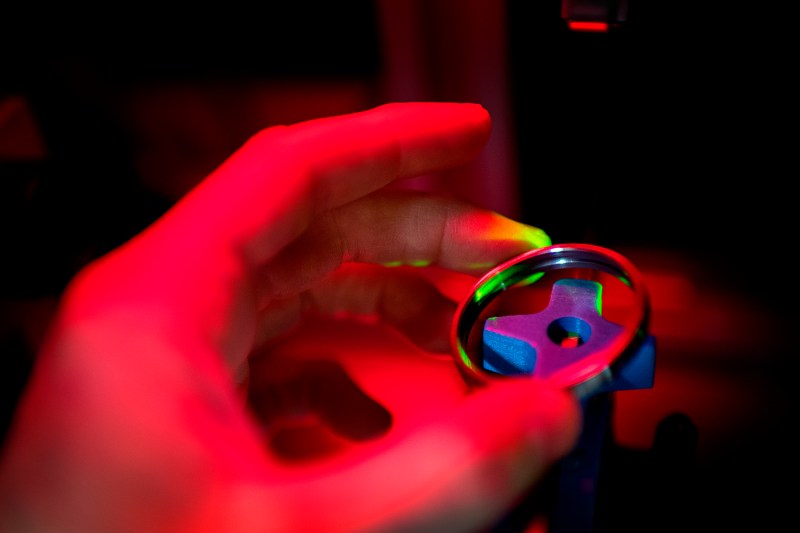

The path to innovation
Layton, E’98, always had an instinct for entrepreneurship. As a kid, he mowed lawns, walked dogs, and delivered papers. He was so industrious that he printed business cards as a 10-year-old to drum up new clients.
After earning engineering degrees at Northeastern and Stanford University, he embarked on a successful career at General Electric and the medical equipment manufacturer Hologic. By his mid-30s, he had gained experience in nearly every facet of business, from R&D, to finance, to marketing. He had the skills to start his own venture, but needed the right idea.
Inspiration struck close to home. Layton has played ice hockey since he was a boy and now his son is playing, too. Every few weeks, he had to take his and his son’s skates to a sports shop to have the blades sharpened by trained professionals. It’s an expensive and inconvenient chore with which every ice hockey player is familiar.

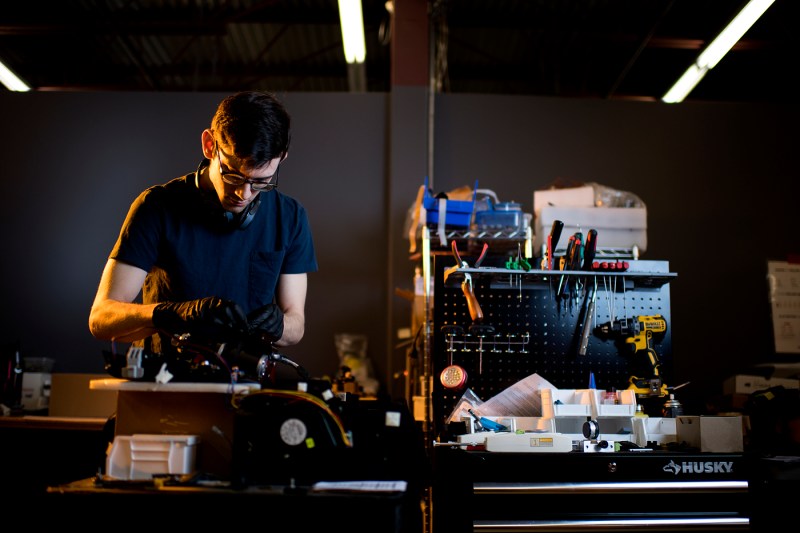
“I remember my parents always having to trek to the store to get my skates sharpened before big games,” he says. “Fast forward 30 years and my 6-year-old son and I both play hockey, and I was still doing this arcane task of going back and forth to the store to get our skates sharpened.”
Layton wondered if he could make an at-home sharpener that was effective yet simple enough for anyone to use. In March 2013, he began spending nights and weekends creating crude prototypes in his garage. He hired two Northeastern engineering students to help part time. In fall 2013, Layton took the leap and quit his day job to perfect a design to show investors.
It was a classic startup: crazy hours, many design iterations, and false starts.
After a few months, the team had a prototype they thought was ready for production. But they confronted yet another frustrating delay: the startup’s board members didn’t like the product design, so they had to start from scratch and rebuild it.
“It was a lot of work, but it was worth it. We went from a design with an exposed mechanical structure to a more enclosed design that looks better and is safer because all the moving parts are protected.”
The compact, 26-inch-wide Sparx Sharpener sells for $899 and “requires zero skill,” Layton says. Once you insert a skate and hit “Start,” the machine automatically aligns the blade and moves back and forth, sharpening in under five minutes. “We turned what was this very artisanal, blacksmith-like process into a machine that’s as simple as a Keurig,” the automated coffee-brewing machine, Layton says.
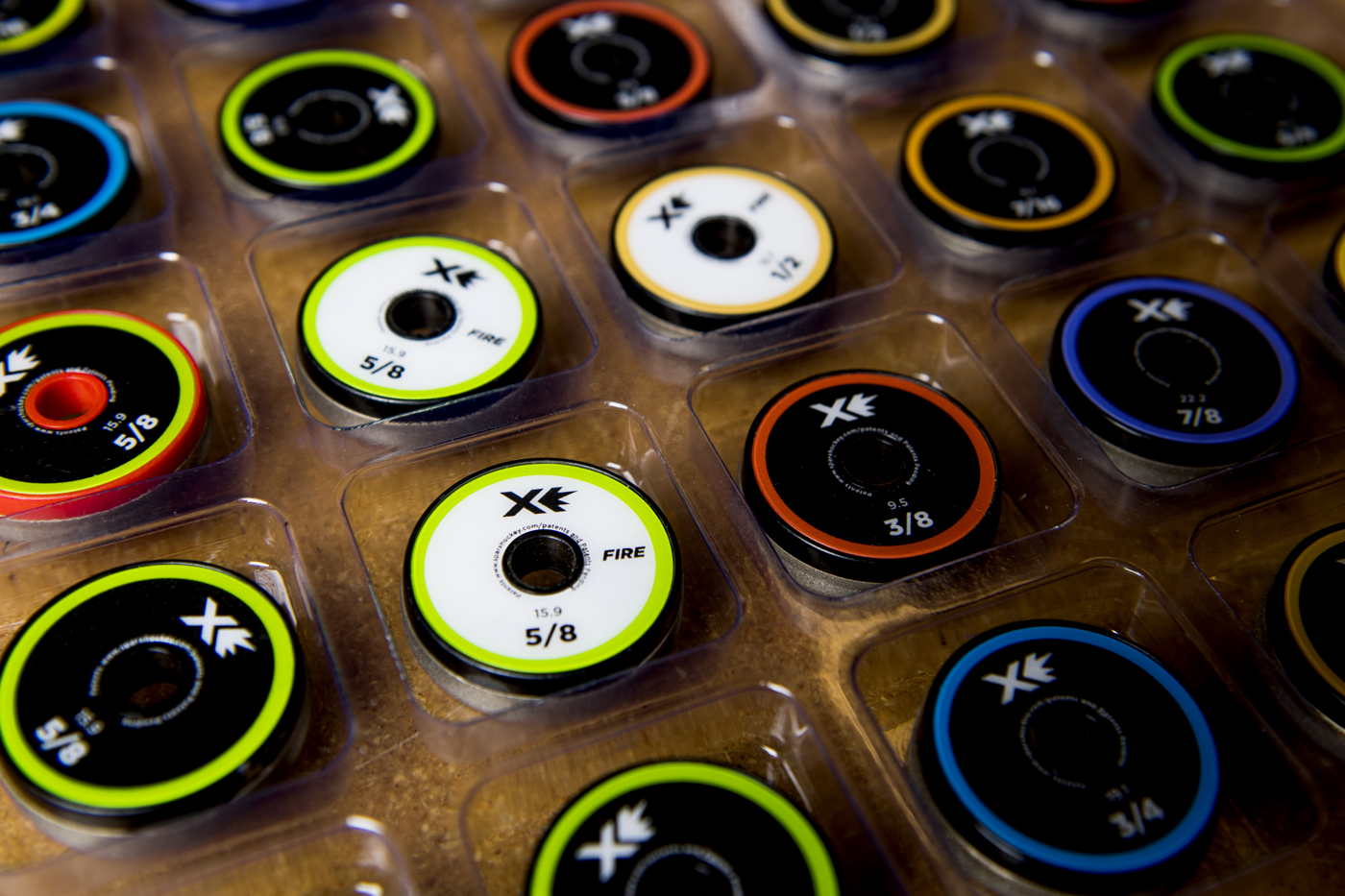
In the past year, Layton sold nearly 6,000, at-home Sparx Sharpeners and introduced a second, commercial-grade design suited to professional and collegiate teams as well as hockey retailers. Layton says he’s learned to apply an entrepreneurial ethos to every facet of his business—from developing new designs to negotiating a creative lease swap that enabled him to acquire a larger manufacturing space.
“I had always wondered, how do entrepreneurs do it? I’ve come to realize over the years that successful entrepreneurs care less about how things are ‘supposed to be done’ and let the world bend to them. They create opportunities everywhere.”





